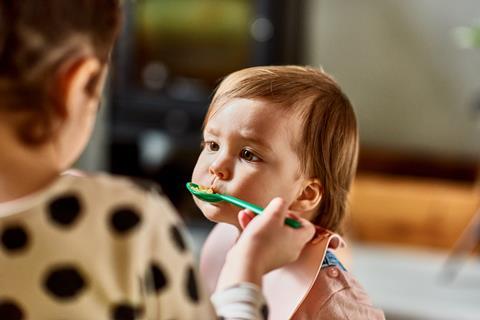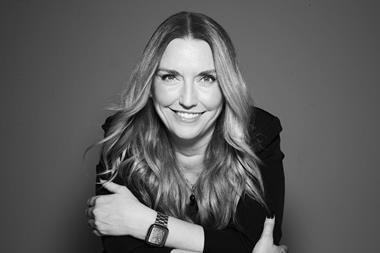
Parents should not rely on shop-bought babyfood pouches as everyday meals, new government guidance states.
In updated guidance, the NHS Start For Life website, run by the Department of Health and Social Care, is advising parents that pouches, jars and trays of processed babyfood should “only be used occasionally” and should not replace home-cooked meals.
It states that parents should never let their baby suck food from the spout of a pouch because it can cause tooth decay, and that children under 12 months should not be given snacks between meals.
The website also advises parents to check food labels and choose products with the least amount of sugar.
It is the first time the NHS website has published advice on commercial babyfood, and follows a recent investigation by BBC Panorama which found babyfood pouches from six leading UK brands (Ella’s Kitchen, Heinz, Piccolo, Little Freddie, Aldi and Lidl) failed to meet their key nutritional needs.
Reports by Public Health England in 2019 and the Scientific Advisory Committee on Nutrition in 2023 raised concerns about the nutritional value of processed babyfoods, and how they were being marketed. At the time, NHS advice to parents was not updated to reflect the reports’ recommendations.
‘Clear, consistent’ advice
The Department of Health and Social Care said: “Good nutrition is essential to giving babies the best start in life. We’re updating the Better Health Start for Life website to reflect the growing variety of babyfoods available and to give parents clear, consistent advice.
“Current laws already set strong standards for babyfood and we support action against any products that don’t meet them.”
Vicky Sibson, director of First Steps Nutrition Trust, said: “We’re delighted to see that DHSC have finally updated their advice for parents on what to feed babies and young children, to systematically make explicit that shop-bought baby and toddler foods should be avoided or minimised and that healthy home-prepared foods are a better choice.
“These changes were overdue and are really important to help parents make informed decisions, especially given that the retail offer remains characterised by a massive array of products which lack the necessary nutrition, are high in sugar, and yet are marketed as healthy, appropriate choices.
“The Government now need to concede that our current, dated baby food regulations are not fit for purpose and prioritise updating them in line with WHO and UK public health recommendations.”
Commenting on the change in a LinkedIn post, Alison Morton, CEO of the Institute of Health Visiting, wrote: “This is brilliant news. This clearer messaging on babyfood will help parents to make informed choices and reduce pressure from misleading marketing claims.”



















No comments yet